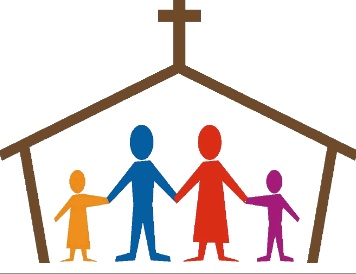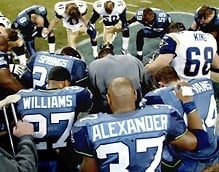 It would be easy to say low church evangelicals clamor for community because there is so much individualism at work, but that’s a cheap shot that misses the target. Liturgical churches can struggle as much with community too. But what needs to be observed, and it has been observed across the spectrum in the last century, is that the NT and the early churches taught a family concept of the church.
It would be easy to say low church evangelicals clamor for community because there is so much individualism at work, but that’s a cheap shot that misses the target. Liturgical churches can struggle as much with community too. But what needs to be observed, and it has been observed across the spectrum in the last century, is that the NT and the early churches taught a family concept of the church.
The best book I’ve seen on this of late, and almost everyone makes comments about individualism but do little more than make comments, is Joseph Hellerman, When the Church Was a Family: Recapturing Jesus’ Vision for Authentic Christian Community
.
.
Hellerman combines three elements: a solid grasp of the New Testament, a firm grip on the development of the early church, and a grounding in cultural anthropology so that he can speak of such things as “strong group.” The combination is insightful.
“… the preeminent social model that defined the Christian church was the strong-group Mediterranean family. God was the Father of the community. Christians were brothers and sisters. The group came first over the aspirations and desires of the individual. Family values — ranging from intense emotional attachment to the sharing of material goods to uncompromising family loyalty — determined the relational ethos of Christian behavior” (119).
Let’s hear from you about a reinvigoration of church as family. What are the problems? What are the strengths? Why do we talk so much about this but do so little about it?
Three critical observations:
1. In the NT world the group took priority over the individual.
2. In the NT world a person’s most important group was his blood family.
3. IN the NT world the closest family bond was not the bond of marriage. It was the bond between siblings.
Here’s the kicker: Hellerman is a pastor and a professor. So, the second part of the book is about praxis, and he begins by taking aim at Jesus as my “personal Savior” and how overly individualistic this can become. Hellerman, helpfully I think, sees salvation as “familification” — a really ugly word but one that makes his point well. This perspective is shifting how his church does evangelism — family seems to be the first step (belong before believe idea).
One of the big ones: he addresses making decisions and sees an order like this:
God’s Family — My Family — Others
(God and God’s family can’t be completely separated in NT.)
And another one: church leadership is plural, not single.
Friends, this book will make it. It deserves a wide reading, and I hope colleges and seminaries will use it in ecclesiology courses.

